If you or someone you know is recovering from an eating disorder, you may have heard of the idea of getting a tattoo to mark the journey. While tattoos are becoming increasingly popular as a means of expression and commemoration, they can also be incredibly powerful tools for those who have struggled with mental health issues such as eating disorders. In this article with Impeccable Nest, we will explore the meaning of eating disorder tattoos, different design ideas, and offer some tips and advice for anyone considering getting inked to commemorate their recovery journey.
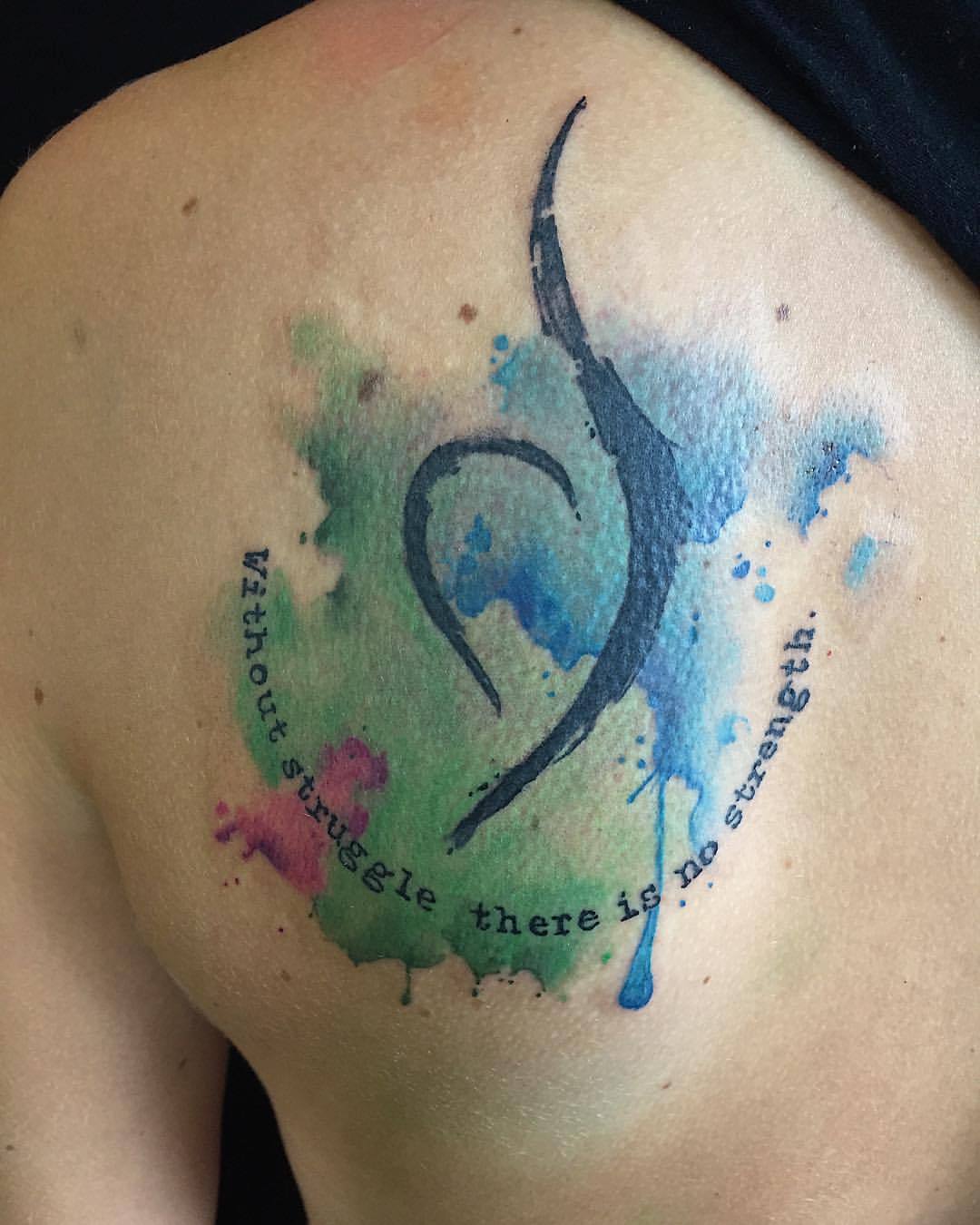
Eating Disorder Tattoo Meaning: What is the Significance?
Tattoos related to eating disorders can hold deep and personal meanings, often reflecting a person’s journey towards recovery, self-acceptance, and resilience. However, it’s important to approach this topic with sensitivity, as eating disorders are serious mental health issues that can have profound impacts on individuals. Here are a few potential meanings that a tattoo related to eating disorders might carry:
Recovery and Strength
Eating disorders are complex mental health conditions that can have life-threatening consequences. They affect millions of people around the world, and recovery from them often requires a great deal of strength, determination, and courage. For many individuals who have battled an eating disorder, getting a tattoo can be a powerful way to symbolize their journey towards recovery.
An eating disorder tattoo can take on many different forms, depending on the individual’s personal experience and artistic preferences. Some people choose designs that incorporate images or symbols that represent strength, such as a lion or a phoenix rising from the ashes. Others may opt for quotes or phrases that inspire them to keep moving forward, such as “I am enough” or “I am strong.”
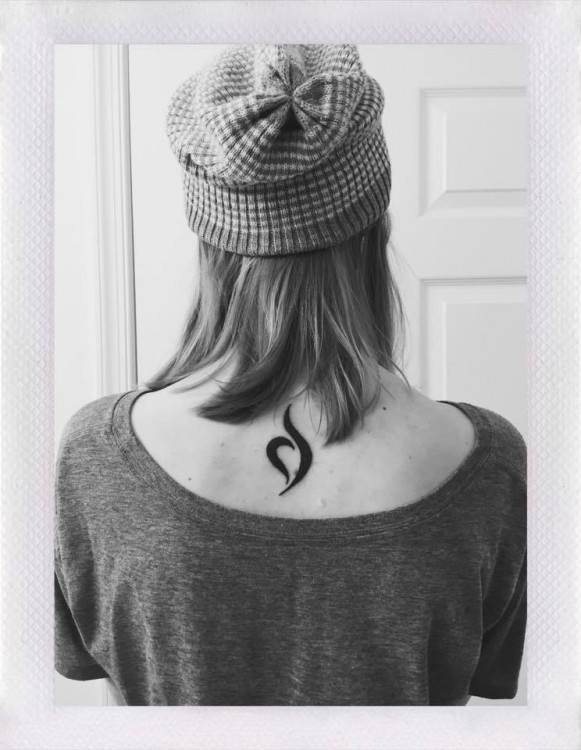
Regardless of the specific design, an eating disorder tattoo is often a deeply meaningful and personal choice. It can serve as a reminder of the challenges that the individual has overcome and the progress they have made towards recovery. It can also be a source of inspiration during particularly difficult times, serving as a physical representation of the strength and resilience that they possess.
While tattoos are not a substitute for professional treatment for eating disorders, they can be a valuable part of the recovery process for some people. By choosing to get an eating disorder tattoo, individuals can honor their journey towards recovery and remind themselves of the progress they have made. In this way, a tattoo can be a powerful symbol of hope, strength, and resilience in the face of adversity.
Self-Acceptance and Body Positivity
Eating disorders are a serious mental health condition that affects millions of individuals worldwide. They can take many forms, including anorexia nervosa, bulimia nervosa, and binge eating disorder. These conditions cause people to have an unhealthy obsession with food, weight, and body shape, which can lead to severe physical and emotional consequences.
For those who have overcome an eating disorder or are in the process of recovery, getting a tattoo with a specific meaning can be a powerful reminder of their journey towards self-love, acceptance, and body positivity. It can also serve as a symbol of their strength and resilience.
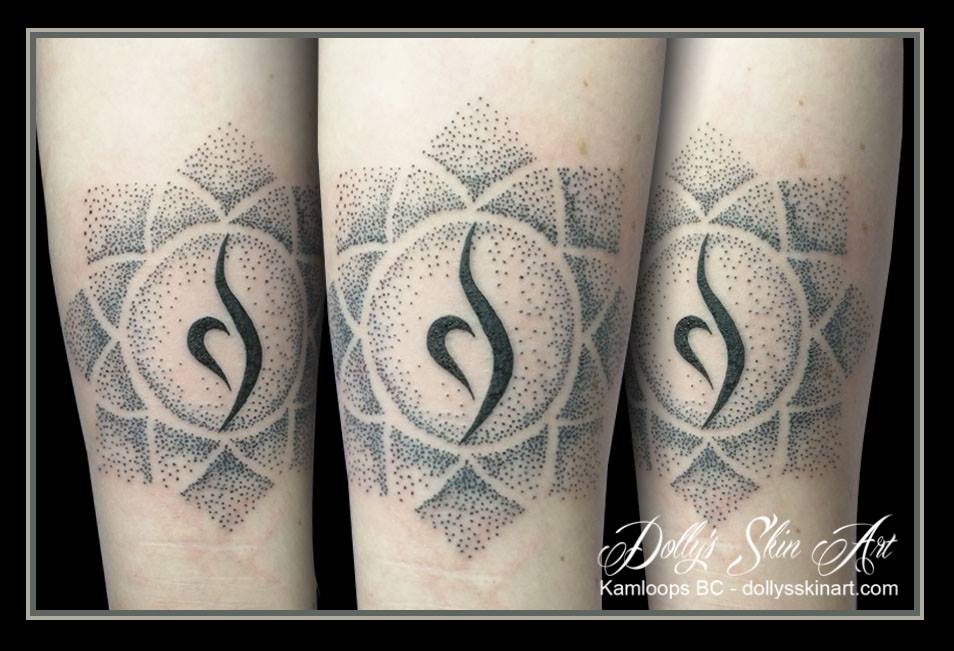
One of the most popular tattoo designs for eating disorder recovery is a semicolon. This punctuation mark represents a pause in a sentence when the author could have chosen to end it but decided to continue instead. In this context, the semicolon represents the idea that life is worth living, no matter how difficult it may seem.
Another popular design is the word “recovery” written in calligraphy or a favorite quote that inspired the person during their journey. Some people choose to get a tattoo of a butterfly, which symbolizes transformation and metamorphosis. This design represents the idea that it’s possible to emerge from a dark place and become a beautiful, vibrant, and confident individual.
Tattoos can also include images like a lotus flower, which symbolizes rebirth and renewal. This design represents the idea that healing is a continuous process, and every day is an opportunity for growth and change.
Ultimately, the meaning behind an eating disorder tattoo is deeply personal and unique to each individual. For some, it may symbolize overcoming a specific challenge, while for others, it may represent an ongoing commitment to self-love, acceptance, and body positivity. Whatever the specific design or meaning, the tattoo serves as a reminder of the progress made and the goals still to be achieved on the path towards recovery.
Empowerment and Resilience
Eating disorders are serious mental health conditions that affect millions of people worldwide. These disorders can have devastating effects on an individual’s physical, emotional, and psychological well-being, and the journey to recovery can be long and challenging. For those who have experienced an eating disorder and successfully overcome it, getting a tattoo can be a powerful way to symbolize their resilience and strength.
The meaning behind an eating disorder tattoo can vary depending on the individual’s experience and personal interpretation. However, one common interpretation is that the tattoo represents the idea of reclaiming one’s life and identity from the disorder. Eating disorders often involve a loss of control over one’s thoughts, emotions, and behaviors related to food and body image. By overcoming the disorder, individuals may feel a sense of empowerment and agency over their lives. A tattoo can serve as a visual reminder of this achievement, a permanent mark of their resilience, courage, and strength.
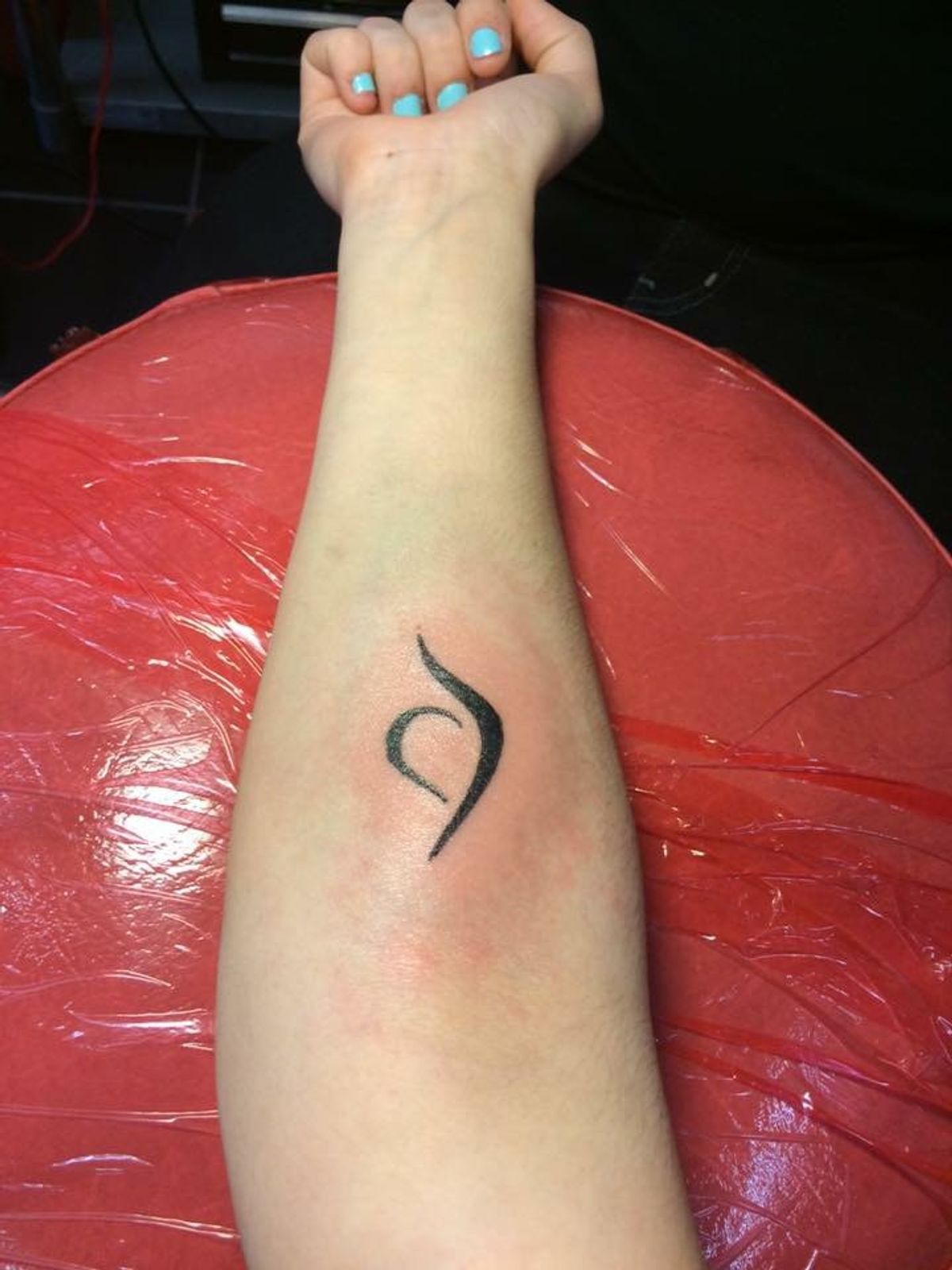
Additionally, an eating disorder tattoo can also represent the ongoing journey of self-love and acceptance. Recovery from an eating disorder involves not only addressing the physical symptoms but also changing deeply ingrained beliefs and attitudes towards oneself. Many individuals with eating disorders struggle with feelings of shame, self-doubt, and inadequacy. Through therapy, support, and self-reflection, individuals can learn to challenge these negative beliefs and cultivate self-compassion and self-love. An eating disorder tattoo can serve as a symbol of this ongoing process, a reminder to continue nurturing a positive relationship with oneself.
Overall, an eating disorder tattoo can hold significant meaning for those who have experienced an eating disorder. It can represent the strength and resilience required to face and overcome such a challenging condition. It can also serve as a symbol of self-love and acceptance, a visual reminder of the ongoing journey towards healing and growth. Whatever the specific meaning behind the tattoo, it can be a source of inspiration and motivation for both the wearer and those around them.
Symbol of Awareness and Advocacy
Eating disorder tattoos are a powerful symbol and statement for those who have suffered from or are currently struggling with an eating disorder. These tattoos often involve a specific design or image that represents the individual’s journey towards healing and recovery from their disorder.
For many, the tattoo serves as a constant reminder of their own strength and resilience in overcoming their disorder. It can also serve as a symbol of solidarity with others who have gone through similar struggles and bring attention to the issue of eating disorders as a whole.
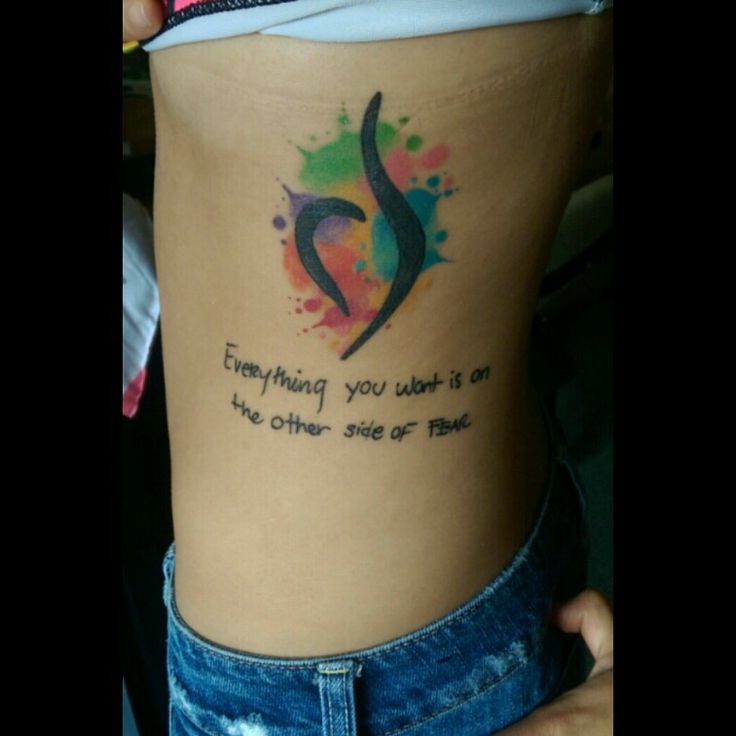
Additionally, these tattoos can be used as a way to raise awareness about eating disorders and promote better understanding and support for those affected. By openly displaying their tattoo, individuals may spark conversations with others who may not be aware of the prevalence and severity of eating disorders, thereby helping to reduce stigma and increase empathy and support for those affected.
Reminder of Progress
Eating disorders are a complex and serious mental health condition characterized by persistent unhealthy eating habits that negatively affect an individual’s physical and emotional well-being. These conditions can include anorexia nervosa, bulimia nervosa, binge-eating disorder, and others. Those who have experienced or are currently battling an eating disorder often face significant challenges in their journey towards recovery.
For individuals who have struggled with an eating disorder, getting a tattoo can be a powerful way to symbolize their progress and remind themselves of the distance they have come in their journey towards health and well-being. A tattoo can serve as a visual representation of their struggle, strength, and resilience, as well as a reminder of the importance of self-care and self-love.
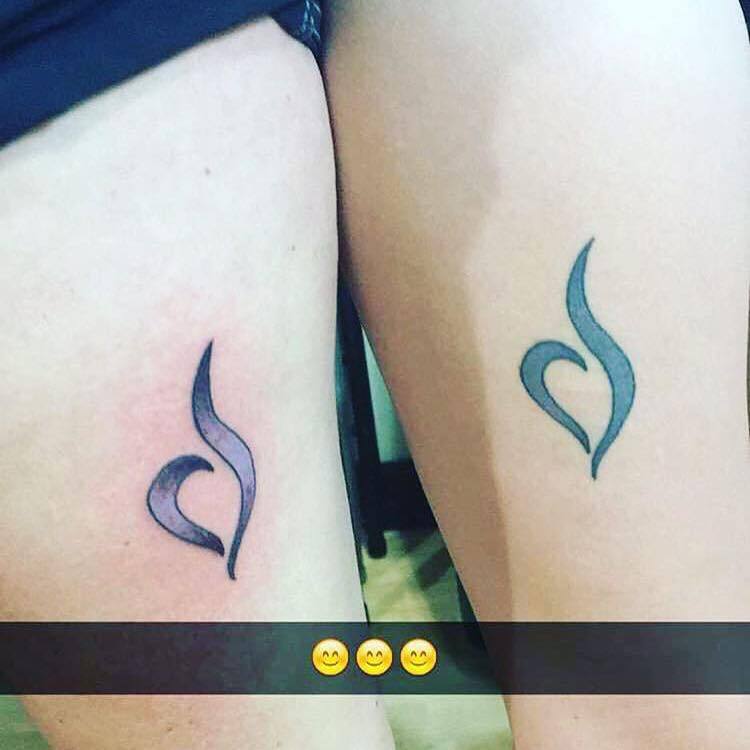
The specific design of an eating disorder tattoo can vary widely, depending on the individual’s personal preferences and experiences. Some people choose to incorporate meaningful symbols or images into their tattoos, such as butterflies (which represent transformation and growth), lotus flowers (which are associated with spiritual enlightenment and rebirth), or even representations of food or nutrition-related concepts.
Others may choose to incorporate words or phrases that have special meaning for them, such as inspirational quotes, mantras, or affirmations. For example, a person who has struggled with anorexia might choose to get a tattoo that says “strong” or “recovery,” while someone who has battled binge-eating disorder might opt for a tattoo that reads “self-love” or “acceptance.”
Ultimately, the meaning behind an eating disorder tattoo is deeply personal and unique to each individual. For some, it may be a source of comfort and inspiration during difficult times, while for others, it may serve as a powerful reminder of their journey towards healing and wholeness. Whatever its significance, an eating disorder tattoo can be a meaningful and empowering way for individuals to honor their struggles and celebrate their progress.
Hope and Transformation
Eating disorders are complex and serious mental illnesses that affect millions of people around the world. These disorders can have devastating effects on a person’s physical, emotional, and psychological health, and recovery can be a long and difficult process. For those who have struggled with an eating disorder or know someone who has, a tattoo can serve as a powerful symbol of hope, transformation, and positive change.
At its core, a tattoo that represents eating disorder recovery is a visual reminder of the belief that recovery is possible. It can be a constant source of inspiration, motivation, and strength for those who are fighting to overcome their illness. The tattoo may be a small, simple design or a larger, more elaborate piece, depending on the individual’s personal preferences and the significance they attach to the symbolism.
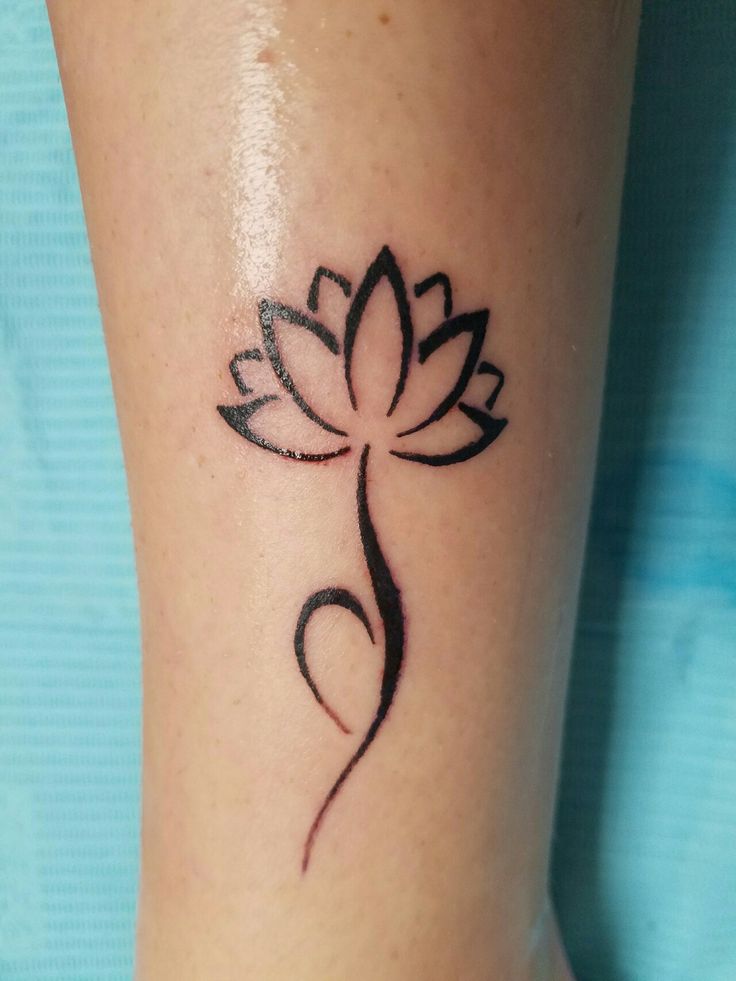
One common theme among eating disorder tattoos is the concept of transformation. This can be represented through images of butterflies, birds, or other creatures that undergo a metamorphosis from one form to another. These symbols serve as a reminder that even in the darkest moments of struggle and pain, there is always the potential for growth, change, and renewal. They can also represent the idea of shedding old patterns and behaviors that no longer serve us, in order to make room for new, healthier ways of living and being.
Another important aspect of eating disorder tattoos is the message of hope and positivity that they convey. For many people, the journey to recovery can feel overwhelming and daunting, and it can be easy to lose sight of the light at the end of the tunnel. A tattoo that represents hope and positivity can serve as a beacon of light in those dark moments, reminding us that there is always a way forward, and that we are not alone in our struggles.
Ultimately, the meaning behind an eating disorder tattoo is deeply personal and unique to each individual who chooses to get one. Whether it represents a specific moment of triumph, a milestone in the recovery journey, or simply a daily reminder of the strength and resilience that lies within us all, an eating disorder tattoo can be a powerful symbol of hope, transformation, and positive change.
Connection and Community
Eating disorder tattoos can have a significant meaning for individuals who have struggled with these kinds of mental health issues. For many people, getting a tattoo related to their eating disorder can be a way to show solidarity and support for others who have experienced similar challenges.
The symbolic meanings behind eating disorder tattoos vary, but they often involve themes of strength, resilience, and hope. Some common images used in these tattoos include butterflies, which represent transformation and growth, and the semi-colon, which is a symbol of perseverance and continuation.
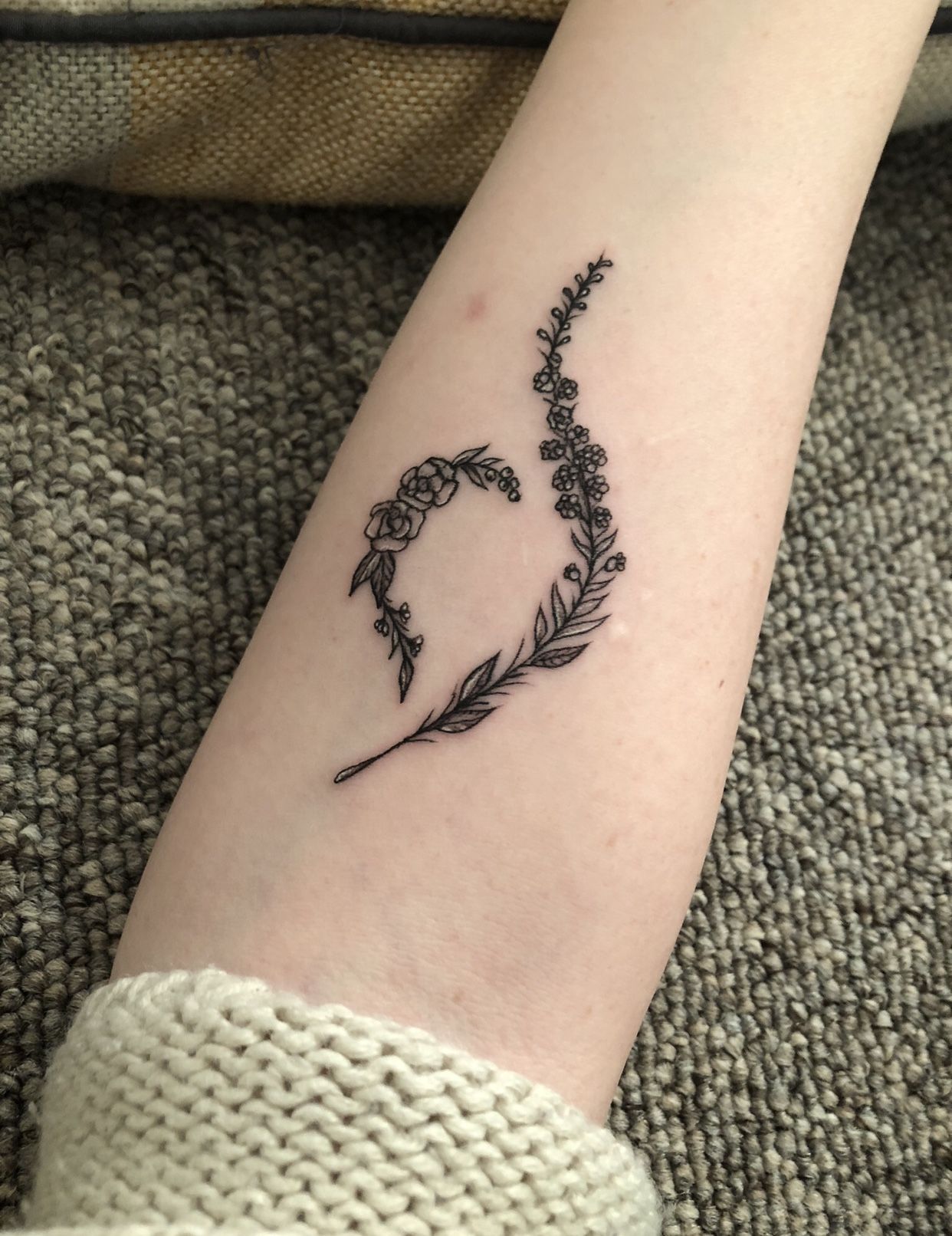
Other people might choose to get tattoos that feature quotes or words related to their experience with an eating disorder. These phrases could be motivational, inspiring, or simply serve as a reminder to stay strong during difficult times.
For some individuals, getting an eating disorder tattoo can also be a way to reclaim their bodies and take control over their narratives. They may feel as though their eating disorder has taken over their lives and left them feeling powerless, so getting a tattoo can be a way to assert their autonomy and create a sense of empowerment.
While eating disorder tattoos can be deeply personal and meaningful for those who get them, it’s important to note that they are not a replacement for professional treatment or therapy. Eating disorders are serious mental health conditions that require specialized care, and it’s crucial for individuals to seek out support from qualified professionals.
If you or someone you know is considering getting a tattoo related to an eating disorder, it’s important to approach the decision thoughtfully and consult with mental health professionals, as well as to ensure that the chosen imagery and message align with healthy coping strategies and positive self-image. Tattoos can be powerful and meaningful, but they should always contribute positively to mental and emotional well-being.
Examples of Eating Disorder Tattoo Designs
When it comes to designing your own eating disorder tattoo, there are many different directions you could go in. Here are a few examples of designs that have been popular among those in recovery:
The Semi-Colon
The semi-colon tattoo has become increasingly popular in recent years as a symbol of hope and perseverance. The punctuation mark represents a pause in a sentence, but not the end – just like recovery is a pause in life, but not the end of the story.
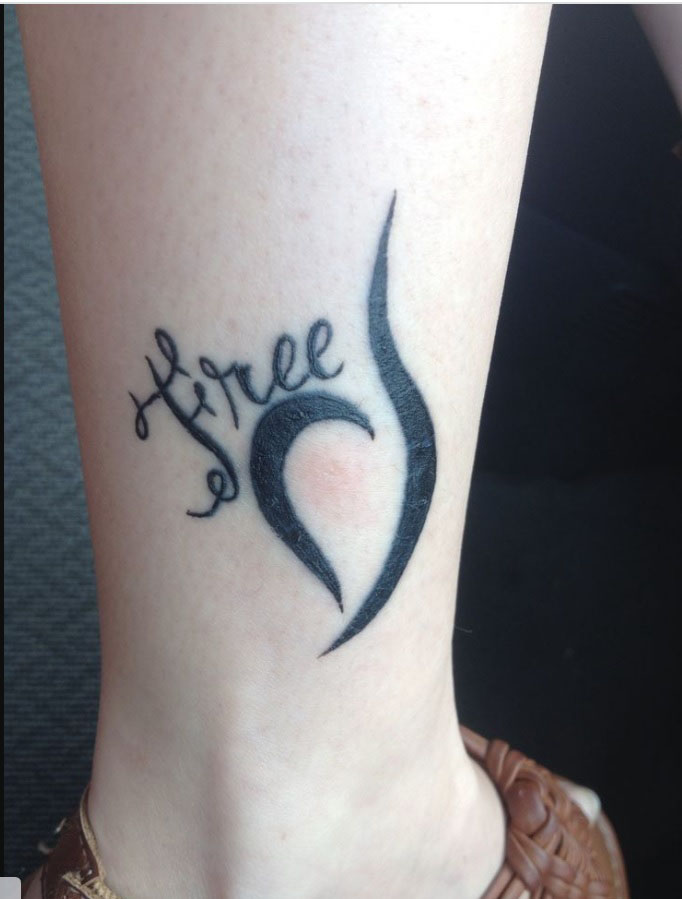
The Butterfly
Butterflies are a common symbol of transformation, making them a popular choice for those in recovery from an eating disorder. They represent the idea that change is possible and that beautiful things can emerge from difficult times.
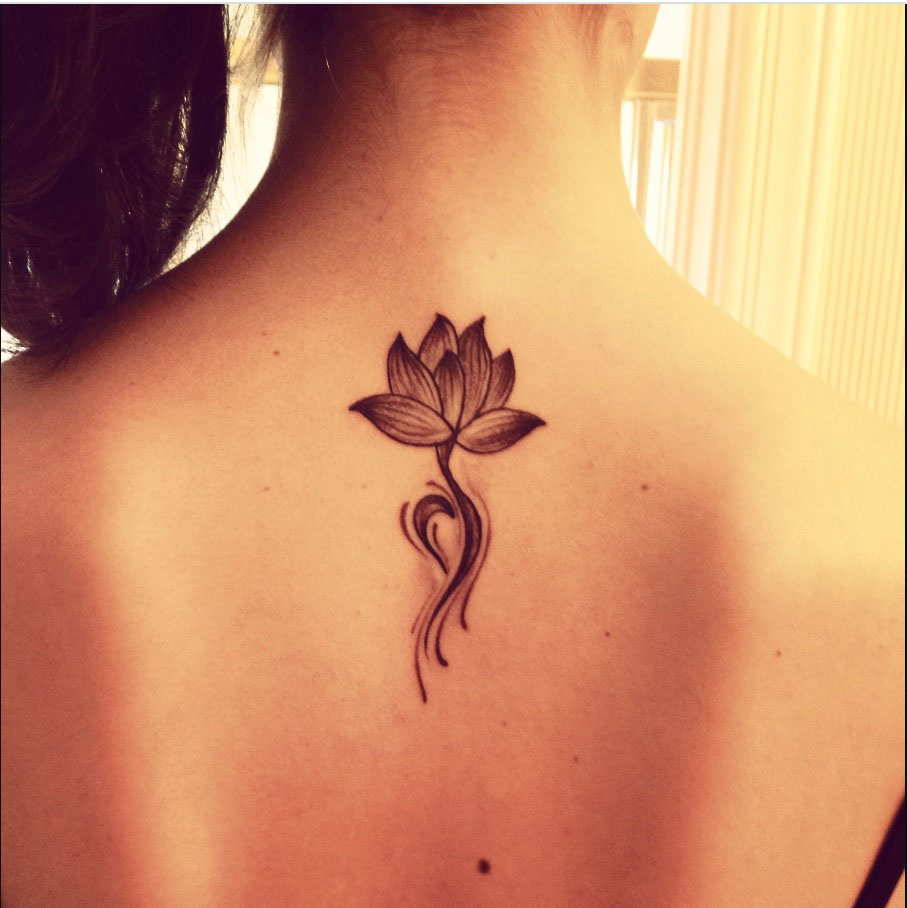
The Lotus Flower
The lotus flower is a symbol of rebirth and new beginnings. It grows in muddy water but emerges clean and pristine, much like how individuals in recovery can emerge from a dark place and start anew.
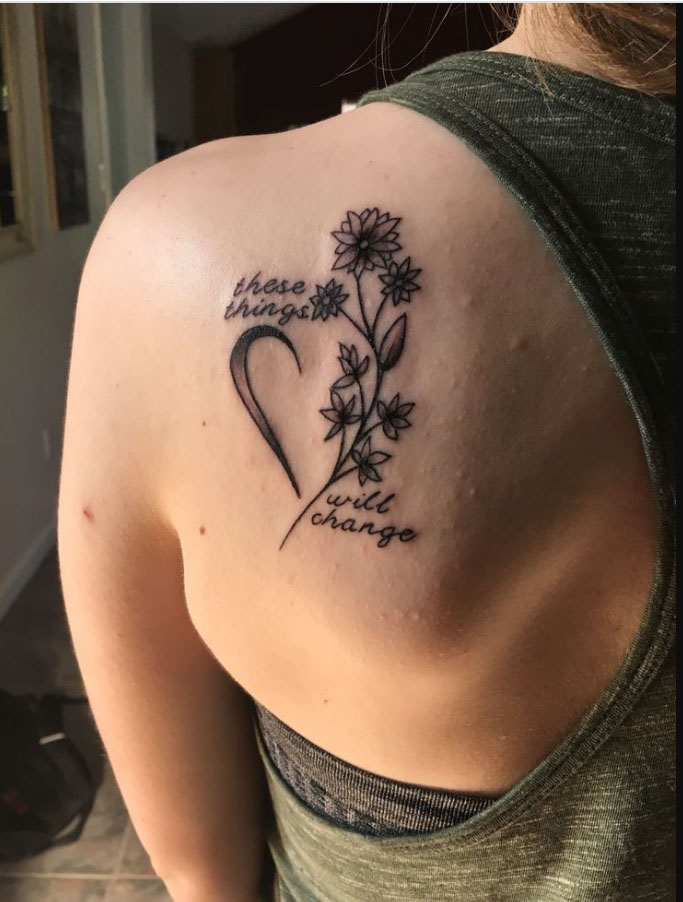
The Heartbeat
A heartbeat tattoo can be a powerful reminder of the importance of physical health and self-care. It serves as a reminder to stay in tune with your body’s needs and to prioritize your well-being.
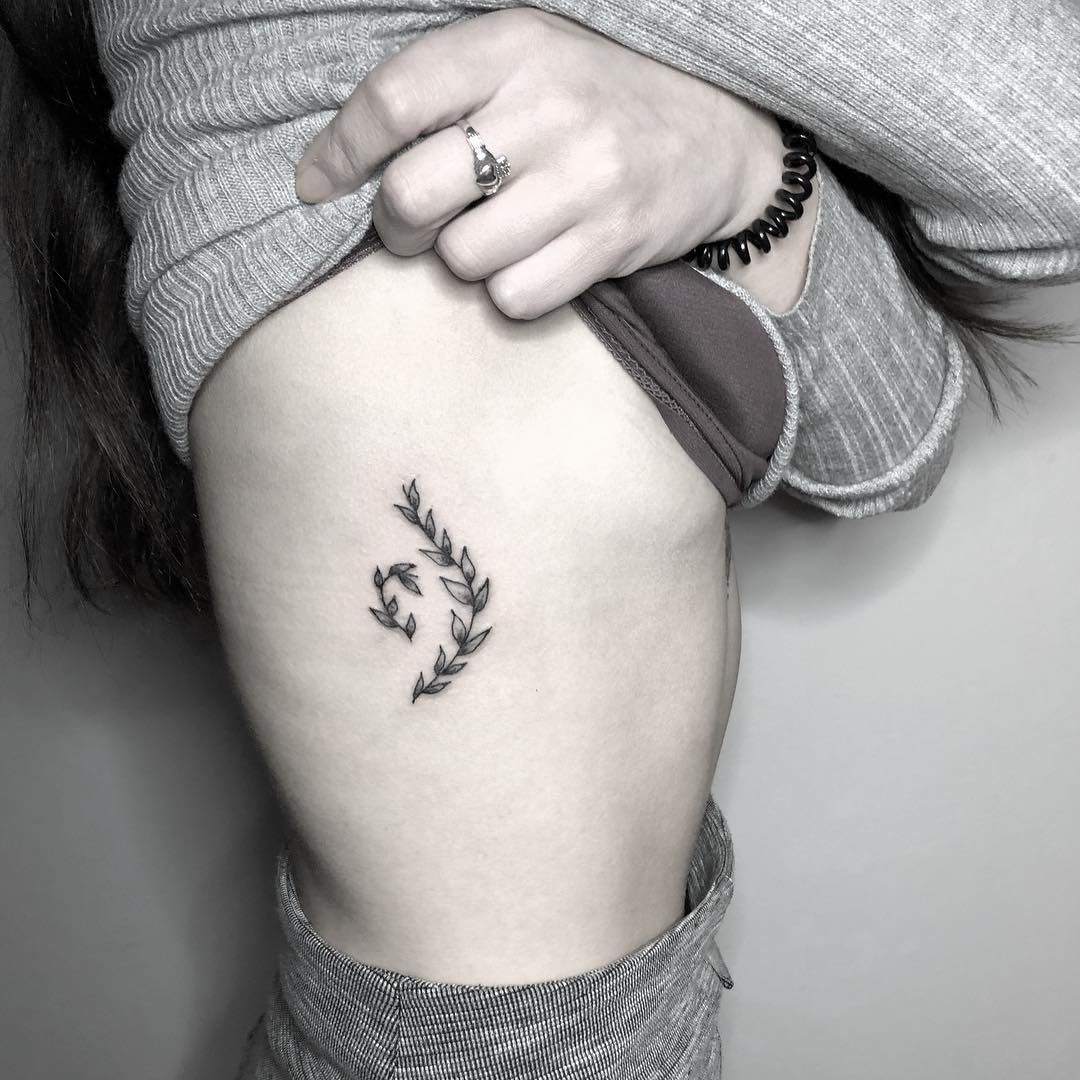
The Recovery Motto
Some individuals choose to get a tattoo of their favorite recovery motto, such as “One Day at a Time” or “Progress, Not Perfection.” These tattoos serve as a constant reminder to stay focused on recovery and take things one step at a time.
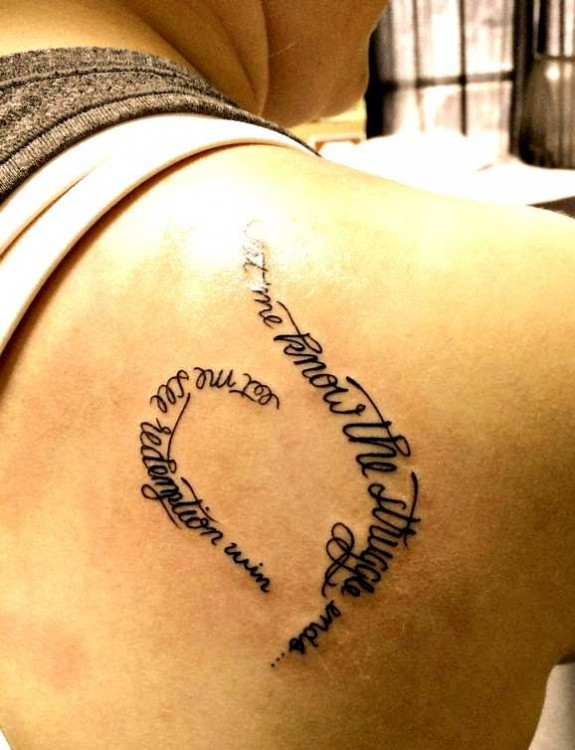
Conclusion
Eating disorder tattoos can be a meaningful way to commemorate your recovery journey, serving as a source of strength and inspiration when times get tough. From the semi-colon to the lotus flower, there are many different design options to choose from – but ultimately, the most important thing is that the design you choose feels significant and personal to you.
Remember to take your time, do your research, and work with a reputable tattoo artist to bring your design to life. With care and attention, your eating disorder tattoo can serve as a powerful reminder of your strength and resilience for years to come.

I am Harvey Berry, a tattoo enthusiast who has immersed himself in the diverse world of ink, passionately exploring the beauty and artistry within each tattoo. My mission extends beyond uncovering the aesthetics of tattooing; it involves sharing in-depth knowledge across all aspects of this art form.
Fueled by genuine curiosity and love for every facet of tattooing, I have diligently crafted well-researched articles, with a special focus on the Tattoo Meaning of Impeccable Nest section. Here, my aim is to help the tattoo community gain a deeper understanding of the meanings and values embedded in each tattoo.
One of my primary goals is to encourage responsible decision-making when it comes to getting inked. I recognize that choosing to get a tattoo is a significant personal decision that requires careful consideration. Hence, I provide diverse resources covering the meaning of tattoos, the tattooing process, aftercare tips, and other valuable information.
Whether you are a seasoned tattoo enthusiast or embarking on your first exploration of the world of body art, I aspire to be a reliable resource for you at every step of your journey. I hope that my extensive knowledge of tattoos, especially in the Tattoo Meaning section, will assist you in finding inspiration to express yourself through the art of tattoos.
